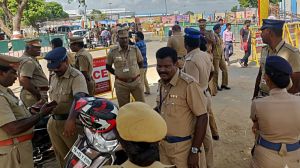I for India
Good that UPA has taken up NDA8217;s plan for I-cards, which the working poor needs most

The UPA government has wisely chosen to desist junking a good idea purely to score a political point. The idea of a national identity card was a much cherished idea of the BJP when it led the previous government at the Centre. And now, in March, a pilot project will finally begin with coverage envisaged for more than 18 lakh people in 12 states and a Union Territory. The hope is that ID cards will fast replace that ubiquitous 8212; and much misused 8212; ration card as a citizen8217;s primary proof of identity. The Centre must support the registrar general to hasten the process, and also caution the states to take steps to prevent the politicisation of the venture.
The ID card is often seen solely as a tool in the national security apparatus. But now, with governments attempting ever newer measures for social security, like rural employment guarantee, the salience of the ID card as a social good becomes evident. It helps make the state accountable in the delivery of promised services, and it also enables citizens to demand their rights. The UPA8217;s flagship social programme, the rural employment guarantee scheme, for instance, would be so much easier to keep on track if targeted beneficiaries are provided with such cards. Other interventions being proposed 8212; like health insurance and school vouchers 8212; would be achievable if beneficiaries had foolproof evidence of identity.
One worry is that in states like Assam, some political parties would be given to subverting the ID card scheme to accommodate their persistent support to the Supreme Court-invalidated IMDT Act. Yes, the ID card would make illegal immigration more difficult. But the benefits to domestic migrants would be immense. The recent attack on Bihari migrants in Assam brought to light the immense difficulties they face in gaining their rights like education and health facilities because they cannot provide basic identification. The point is, identification aids the most vulnerable sections of society. It would be a pity if party politics undermines a good idea
- 01
- 02
- 03
- 04
- 05































